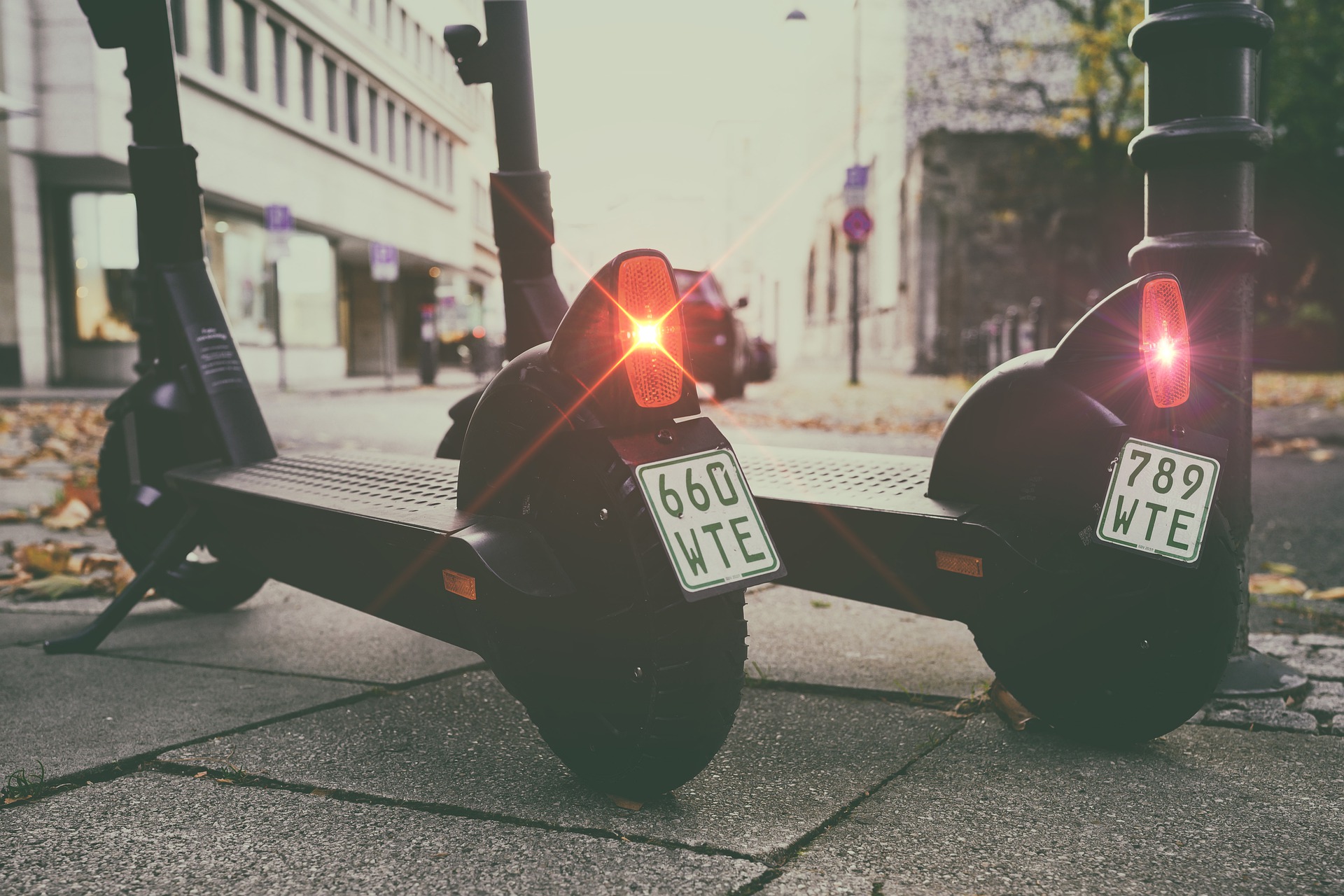
UK traffic and road safety organisations have expressed grave concerns about the government considering making e-scooters legal on British roads. The Department for Transport is interested in allowing e-scooters to be used and has sanctioned trials of rental schemes.
The department carried out a consultation on the topic ‘Future of Mobility’, outlining the government’s approach to maximising the benefits from transport innovation in urban areas. But with increased scooter traffic is there a need for tighter insurance regulations especially in the courier sector?
According to Google Trends tracking data, there has been a surge in interest in electric scooters since the start of the COVID-19 lockdown – with a massive 370% increase in searches.
What Are E-Scooters?
E-scooters are two-wheeled scooters with small electric motors. Their popularity has grown, and scooter-sharing schemes now operate in more than 100 cities around the world - including Paris, Copenhagen and San Francisco.
The Department for Transport wants e-scooter rental schemes - similar to those seen in European cities - tried out across England, Wales and Scotland. Primarily, four ‘future transport zones’ were chosen for the year-long trials - the West Midlands; Portsmouth and Southampton; the West of England Combined Authority (Bristol, Bath and surrounding areas); and Derby and Nottingham. Voi is an e-scooter sharing company that operates in more than 45 of Europe’s biggest cities.
E Scooters - What’s Legal?
While renting a scooter is legal (subject to driving checks), it is illegal to use a privately-owned e-scooter on a UK public road, cycle lane or pavement, even within a trial area. The only place you could use it is on private land. People can hire e-scooters, often using smartphone apps.
Unlike electric bikes, e-scooters are classified as PLEV ‘personal light electric vehicles’ and are subject to the same legal rules as cars – including mechanical safety standards, road tax, and insurance.
During the year-long trial, e-scooters will be classified as motor vehicles and people will need a driving licence (and at least a provisional one) and insurance to ride one. Overseas driving licences include those with a valid full licence from an EU or European Economic Area (EEA) country, or have a valid full licence from another country that entitles you to drive a small vehicle and the person entered the UK within the last 12 months. Provisional licence holders don’t need to show L plates when using an e-scooter.
E-Scooter Safety Issues
As part of a £2 billion plan to invest in greener travel, the government says it will monitor safety and keep the year-long scheme under review.
There are no official figures on e-scooter deaths and injuries, but there have been a number of reports. The Quartz news site reported that at least 29 people had died in e-scooter accidents since 2018, whilst The Associated Press estimated in June 2019 that there had been 11 e-scooter deaths in the US since Autumn 2018. Researchers at the University of California found that hospital admissions involving e-scooters more than doubled between 2014-2018 in the US
Some e-scooters have only a single brake, which makes stopping safely more difficult. TV presenter and YouTube star Emily Hartridge is believed to have been the first e-scooter rider to die on a British road. During the inquest in September 2020, a coroner ruled she had been riding her e-scooter too fast with an under-inflated tyre at the time of the crash.
E Scooters in the Courier Sector
For those looking at e-scooters for future business use or as part of a courier business, they are currently freely available to buy in the UK online and in stores. They can cost anywhere from just over £100 to more than £1000 but it is difficult for them to have rear red lights, signalling ability and a number plate. In recognition of this, the Government is now considering changing the current legal strictures to allow for this emerging mode of transport on British roads.
The Government has also amended the Motorcycle (Protective Helmets) Regulations 1998 to remove the requirement for e-scooter riders to wear a helmet and there are also no compulsory measures to help improve the visibility of e-scooters travelling in darkness, such as reflective clothing or headlights. E-scooters must have a maximum speed of 15.5mph but a downhill slope can certainly magnify that speed.
Most e-scooters aimed at consumers are built with existing regulations and are neither fit for the daily commute nor safe enough to cope with these new demands. These issues combined with the trial being practically unpoliceable are the result of vague regulations and inconguities in rules around e-scooters. Until proper legislation is introduced the debate around the future and safety of e-scooters will continue to rage.